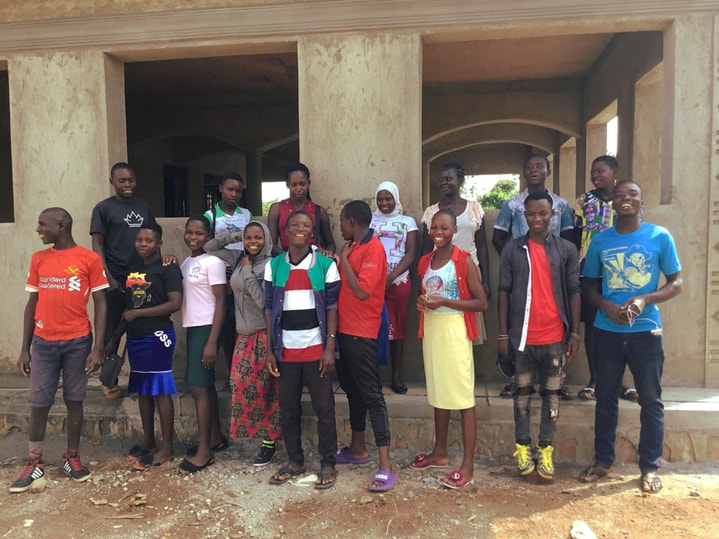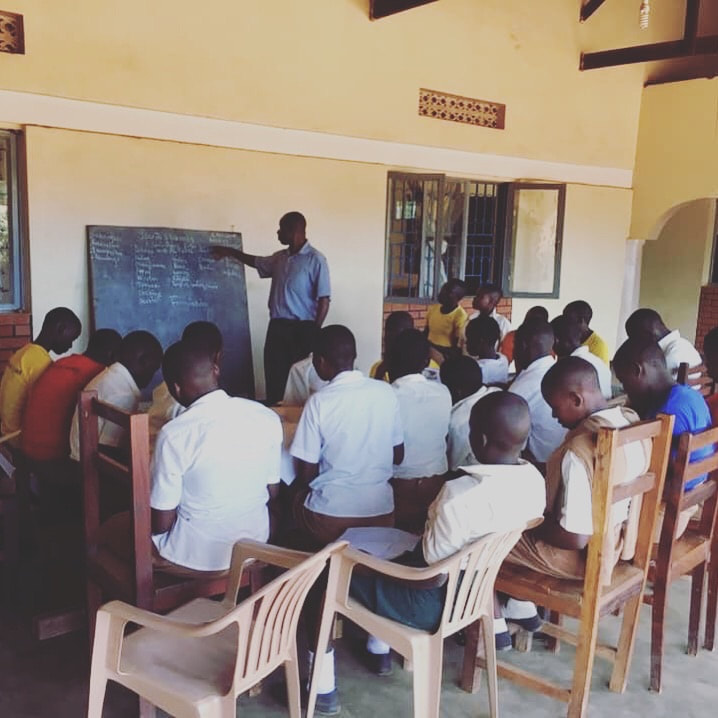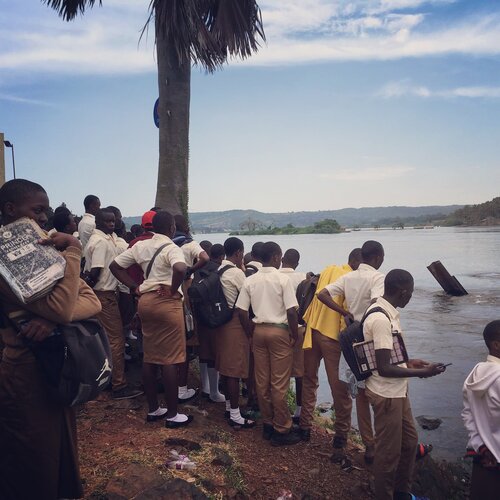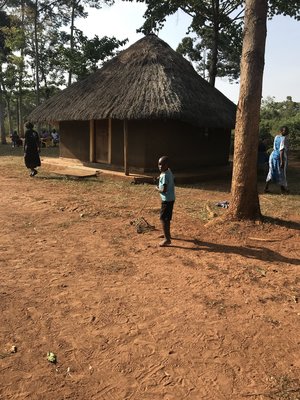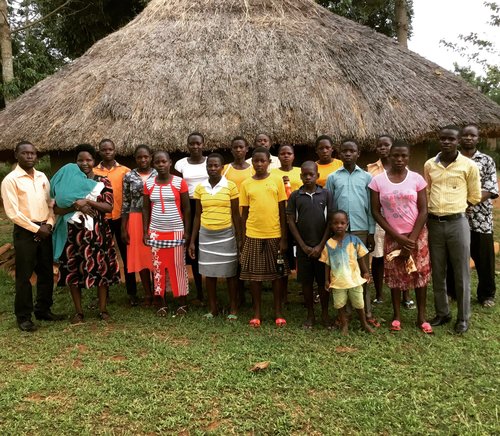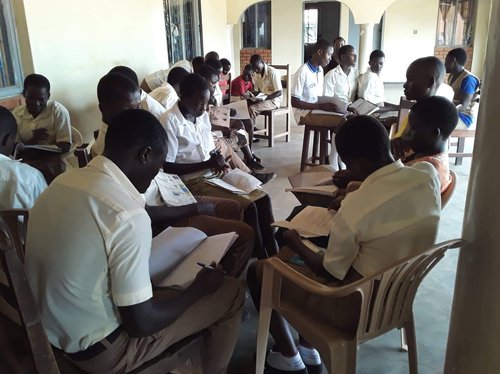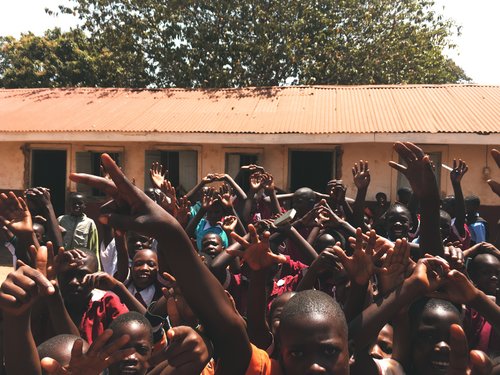|
Orphanhood is complex in the Busia District of Uganda, Africa. When I speak of “orphans” in this context, I’m specifically addressing the physical orphan, not spiritual. If we want a better grasp of how we are called to rightly serve orphans in the Busia District, we must ask the right questions: How did one become an orphan? What does the Bible say about orphans? Who has the responsibility to care for orphans? What’s the church’s role in orphanhood? And so on. I’m not going to branch off into sociological theories, systemic modalities, or psychological strategies to answer these questions. There are many resources for that, this is not one. Instead, I am going to breakdown a small portion of Scripture, specifically analyze the current state of orphans in the Busia District, and biblically discern who fills what roles to position orphans with the opportunity to flourish. As a para-church organization, Son Mission, we first seek God’s Word for answers. Can it really be that simple? Yes. God gives us the blueprint for flourishing within many contexts, even for the orphan, widow, and single mother. The Bible speaks of the physical orphan and how we are to respond (James 1:27, 2:15-16; Hosea 14:3; Isaiah 1:17; Deuteronomy 10:18). I love this command: "Defend the cause of the weak and fatherless; maintain the rights of the poor and oppressed." Psalm 82:3 But I want to focus on and draw principles from an admonition that is more subtle for the physical orphan: 3 Honor widows who are truly widows. 4 But if a widow has children or grandchildren, let them first learn to show godliness to their own household and to make some return to their parents, for this is pleasing in the sight of God. 5 She who is truly a widow, left all alone, has set her hope on God and continues in supplications and prayers night and day, 6 but she who is self-indulgent is dead even while she lives. 7 Command these things as well, so that they may be without reproach. 8 But if anyone does not provide for his relatives, and especially for members of his household, he has denied the faith and is worse than an unbeliever. (1 Tim. 5:3-8) In his book “Family Shepherds”, Pastor Voddie Baucham Jr. draws principles from these instructions penned by the Apostle Paul and argues they are applicable to single mothers and orphans. Pastor Voddie highlights, from these verses, who is responsible to serve the orphan and within what role; breaking it down into three levels: level one - nuclear family; level two - extended family; level three - the church. Sadly, for the orphan, care from level one, the nuclear family, is not an option. Level two, the extended family, is biblically responsible to step up as the caregiver for the orphan(s) within their extended family. I have been greatly encouraged by the professing Christians in the Busia District who have stepped up as caregivers for their deceased relative’s children. Many of the orphans we serve are adopted by their relatives: aunts, uncles, grandparents, cousins. This is Biblical. This is good. Pastor Voddie points out that level 3, the church, has limited jurisdiction in service to the widow (orphan). The church in this context is referred to as a physically established local church. Notice how the church is the last line of defense, not the first. In general, the local church is called to provide pastoral care, counsel, and sometimes temporary financial relief for orphans and their caregivers. The dismantling of the nuclear and extended family happens way too often, and when this occurs, the families that make up the local church are the next in line to defend the orphan. The best means of discipleship for an orphan is immersion into a Bible-believing family. Church leadership should be equipping their saints to welcome orphans into their homes. This is a regular practice in the Busia District churches as they encounter this situation all too often. Over spiced African tea in 2016, I listened to a pastor testify to the countless times a child was left at the front door of his church. This is why he regularly equips his saints to be prepared. I have been humbled and encouraged to witness Christian families, all over the Busia District, adopt orphans into their already large and poor families. And they do so, gladly, as a privilege and calling. As we can see from Scripture, there’s a formula to follow when serving the orphan in the Busia District. Son Mission encourages all 3 levels to work together for the good and flourishing of the orphan. This is why we encourage, equip, and provide relief for orphans, caregivers, and churches - focusing on making disciples in each level. As a para-church, we do not replace the role of the nuclear family, the extended family, or the local church. Rather, we come alongside each level and leverage what God has given us to provide where there is need: discipleship, scholarship, education, encouragement, basic needs. We have been blessed to partner with caregivers who truly love God and their orphans as their own. They need help and encouragement along the way. That is why we exist: To stand in the gap with them - making disciples. Son Mission has been partnering with caregivers and their orphans for almost 6 years. We have encountered challenges, learned from our own mistakes and made improvements along the way. We have seen most of our students flourish and a small portion fail. When failure happens: We pick them back up, encourage them, and press them forward in Christ. But sometimes obstacles surface that are completely out of our or their control. As Christians, we are called to pray for wise governing from government leaders. As the Son Mission Director, I specifically pray for Uganda’s government to not hinder the development of orphans. Apostle Paul never said it was the government’s role to adopt or care for orphans, but rather the government’s role is to protect citizens from lawlessness and render justice. Uganda’s government has enforced laws and mandates that have yielded the susceptibility and vulnerability of orphans to lawlessness. I am going to spend some time discussing how Uganda’s government has moved away from their jurisdiction; preventing children, orphans, and others from flourishing on a very basic human level. The purpose of pointing out the failings of Uganda’s government is not to bash them but rather help us understand the specific plight of the orphans we serve in the Busia District. We need to put ourselves in their shoes. My pastors, Josh McPhereson and Adam James of Grace City Church, seek the biblical flourishing of their community, their church, and their families. They have unequivocally articulated the importance of living within three jurisdictions: (1) the family, (2) the church, and (3) the civil government. When one of the three jurisdictions swerve into the lane of the other - disorder and dysfunction will eventually ensue. God never intended for the church to solely disciple children. That’s the role of the family. God never intended for the government to dictate how, when and if the church can sing or gather. That’s the role of the church. God never intended for the family to render justice on lawbreakers. That’s the role of the civil government. Uganda’s government has swerved into the lanes of the family and church; resulting in the unnecessary suffering of children and orphans. How so? Uganda’s government has fully or partially shut down schools for 77 weeks and counting due to the coronavirus pandemic. According to the United Nation’s Cultural Agency, these 77 weeks have been the longest school disruption in the entire world. Why? Has Uganda’s children been dying in droves from the coronavirus? No. I’m not going to spend time analyzing the “why” behind the government doing this, instead I want to focus on the effects these 77 weeks have had on orphans and vulnerable children in Uganda. According to research conducted in East Africa and Uganda (Sources: Here & Here), about a year into the lockdowns, Uganda experienced increased violence against children, increased sexual abuse against children, increased child labor among children, increased sex trafficking of children, and decreased availability of basic needs for children. The Uganda Child Helpline (UCHL) averaged about 100 calls per day before school lockdowns. During the school lockdowns, calls increased from 100 to 1369 per day. You read that correctly. These calls ranged from physical abuse, sexual abuse, abandonment, neglect, even murder: 20% of found cases were sexual abuse against girls. Additionally, basic needs are difficult to attain due to the lockdowns, resulting in the following: “In such cash-strapped families, access to basic needs is hardly possible; further propelling children to indulge in risk behaviors for survival such as commercial sexual exploitation and, in some parts of the country, adolescent boys were reported resorting to food theft for survival. Many girls are reported to have entered cross-generational relationships, to access basic supplies such as sanitary pads and soap, yet they have limited access to sexual and reproductive health services which have contributed to early pregnancies and sexually transmitted infections.” (Read the research conducted) Finally, child labor has significantly increased: “As many parents lost income, unable to feed their families and their households being pushed into extreme poverty and hunger, children are thus increasingly forced into hazardous and exploitative work to support their families. According to the Save the Children's survey, 56% of respondents reported an increase in children working since lockdown began. In many parts of the country, children have been seen selling food items, alcohol, firewood, working in gold mines and grazing animals, among others, since the lockdown started.” (Read the research conducted) The reports I receive from the Son Mission Busia team echo the findings in this research. Please dig around and read the research. To summarize, the effects of school lockdowns have increased sexual abuse among children, increased physical abuse among children, increased child labor among very young children, decreased access to basic needs for children, and so much more. The government is called to protect people, not exploit them. Are these school lockdowns protecting Uganda’s children, allowing them to flourish, and helping Uganda’s future as a nation? If you were a parent in Uganda, would you be for school lockdowns? Through an American lens, we do not fully grasp the Ugandan culture and how their culture is centered around children being present in school. Schools are a place of refuge for many students. During lockdowns in America, schools sent students home with WiFi and laptops. That’s not a thing in Uganda, if you are tracking. It is much more complicated there. It is fair to conclude that Uganda’s government has swerved into the lane of family (and church but we don’t have time for that right now). Families need their children to learn, socialize, grow, eat, play, etc. Children need to be present in school to learn, socialize, grow, eat, play, etc. Uganda’s government swerved into the family’s lane and continues to plow over children’s God-given right to flourish as image-bearers. As Pastor Voddie pointed out, there are 3 biblically responsible levels to serving orphans: (1) nuclear family (2) extended family (3) the church. As we know, orphans in the Busia District are without their biological parents; their extended families were forced to stop working (yielding frustration and no resources to provide for their families); and the church was forced to completely shut down, off and on, for months. I’m not going to chronicle the month by month status of the lockdowns in Uganda - just know that it was all over the place. Some months, churches were allowed to open. Other months, schools were allowed to open. But they all ended up closing again, and the schools remain closed today. So what did Son Mission do in these 77 weeks? We had to get creative. We hired teachers for three months in 2020 to teach our 28 orphans at an undisclosed location. We provided monthly luncheons for our caregivers and orphans. Weekly, we went to the homes of each orphan and prayed with them. We transported them to and from school when schools closed and re-opened and closed again. Each orphan we serve is more vulnerable because of the school lockdowns. The Christian boarding school we partner with provided our 28 with shelter, security, accountability, food, education, and more. This has been taken away for most of 77 weeks. This is no small deal. Some of our students are weathering through the storm, whereas other students are struggling. For instance, Erumbi Priscilla has been with Son Mission since 2016. She is currently a junior and number 1 in her class. She has been heartbroken since the school lockdowns started. She is eager to become a bank accountant, experience more of her country, and learn how God has equipped her to serve those around her. Erumbi loves school so much that during school breaks (in-between terms in 2019) she snuck into public schools and covertly sat in large classes to learn. Thankfully, she is still patiently waiting for schools to open and hasn’t fallen victim to child abuse - that we know of. For other students, this is not the case. A vulnerable orphan that has been with us since 2016 is now pregnant. We do not know if this happened due to force. An investigation is still pending. This is heart-wrenching because she was thriving at the Christian boarding school. She was safe. She was learning. She was growing in Christ. She was committed to waiting for marriage. I believe the more we unravel the effects of what happened to our 28 orphans during these 77 weeks, we will find a lot more heartbreak. What is next for the 28? Ostensibly, schools are to open back up in January of 2022 - only if every teacher and student gets vaccinated. There seems to be flaws with this plan - refrigeration for starters - but we won’t venture there now. Where I must venture is how I am going to lead Son Mission as 77 weeks turn to 78, 79, 80, etc. By the grace of God, a bunch of generous Christians and Grace City Church: Son Mission now has a physical building in the Busia District. How this happened so quickly is providential. The timing is truly a testimony of the goodness of God and His people. Would God have Son Mission leverage this building to help encourage, teach, educate, and train orphans, caregivers, and pastors during this “unprecedented time”? Or would God have us lock the doors, wait until everyone in the Busia District is vaccinated, and indirectly allow the government to plow over the vulnerable until they decide it’s time to swerve back into their lane? The Son Mission Hub is open for trades, training, harvesting, discipleship, and more. Over the next 2 months (during the final stages of construction), we are providing 18 full days of counsel, discipleship, and food for the 28 at the Hub. They need to socialize. They need structure. They need hope. They need to learn. They need discipline. They need Jesus. And their caregivers need some relief. Son Mission is called to defend the 28 by simply playing our God-given part in their transformation for His glory: "Defend the cause of the weak and fatherless; maintain the rights of the poor and oppressed." Psalm 82:3 Will schools be open January 2022? I don’t know the answer to that question but I do know that God has given us the responsibility to shepherd these 28 in partnership with the church and their caregivers. You can’t make disciples if you close your doors. You can’t serve the weak and fatherless if you wait for others to do so. You can’t step up to your calling in Christ if you are indifferent to the unjust suffering of the most vulnerable. Once again, Son Mission is open. Come as you are: masked, unmasked, vaccinated, unvaccinated. In the words of pastor Andrew Wafula, “You are most welcome here.” Author: Logan Heine Founder of Son Mission
0 Comments
|
Son MissionTestifying. Glorifying, and Illuminating Jesus. Categories |
About:TeamVisionWritingsStatement of Faith |
Missional Engagement:TradesThe HubFaith Babies HomeBiblical Curriculum |
Contribute:GiveSponsor an orphanBecome a monthly partner |
Stay Connected:
|
|
Romans 8:14 | Wenatchee Valley, WA | Copyright 2024 | 501(c)(3)
© Son Mission. All rights reserved.

